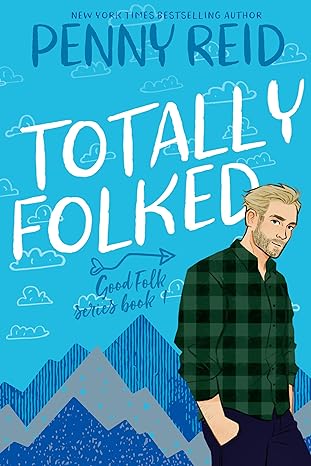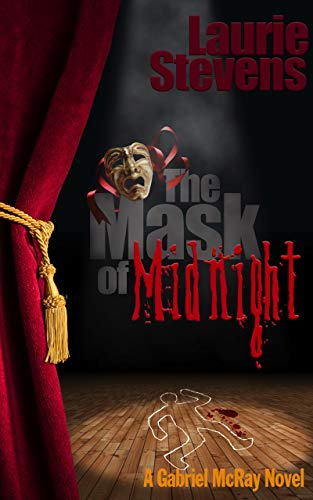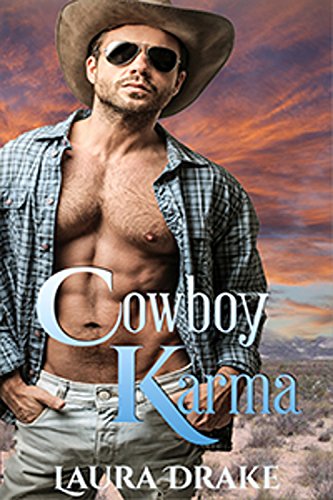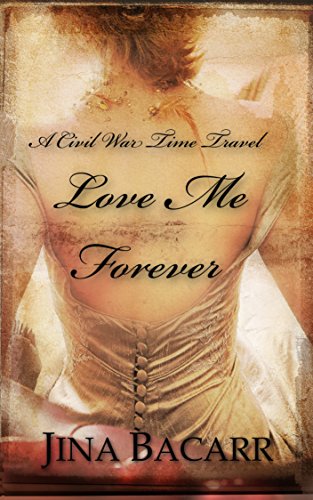Marriages of Convenience – Yum!
January 8, 2009 by A Slice of Orange in category ArchivesMy blog this month is inspired by a discussion running on eHarlequin about that most traditional of romance novel storylines, the marriage of convenience. I love marriages of convenience (in books, that is, not in real life 🙂 )! A marriage of convenience is more likely than any other plot to get me reading books in a line or series I don’t normally read.
What’s so great about them? For me, I think it’s the larger-than-life situation that “forces†two people into marriage. These days, you’ve got to have a pretty compelling reason to get married, so as a writer it’s a real challenge to think up a marriage of convenience story that my editor believes readers will accept. But once you’ve managed to force your couple into marriage, there are endless opportunities for wonderful banter and fun situations.
In my new book out next week from Superromance, The Groom Came Back, the hero and heroine got married when the heroine, Callie, was a schoolgirl, to rescue her from a custody battle. Callie’s dying mother approved the marriage so Callie could go on living with the “groom’s†family, who were fostering her, rather than being forced to live with her estranged grandparents. The hero, Jack, was back in town to support his parents through a difficult time, but wanted to escape back to his budding career as a neurosurgeon. He figured he could help Callie, and at the same time ensure his parents, who loved her like a daughter, got to keep her with them. Apart from Callie’s mom, no one else knew anything about the wedding…until eight years later, when Jack comes home to get a divorce and discovers Callie is definitely no longer a schoolgirl!
Yvonne Lindsay has a book out from Desire next month called Convenient Marriage, Inconvenient Husband (great title, I’ll definitely be buying that one!). She’s hosting the current discussion at eHarlequin about the appeal of the marriage of convenience. Yvonne says, “I love seeing people forced into a situation outside of their control†– hehe, that’s mean, Yvonne! Mean, but true…all we MoC fans love to see that.
A couple of weeks ago I read a book by Tessa Radley called Pregnancy Proposal. The marriage of convenience was actually an engagement of convenience in this book (which was released from Desire in December and is still available online), and it was a lovely story. These days, people don’t necessarily believe pregnancy is a good reason to get married, but Tessa creates her characters so well, I easily believed neither of them had any alternative but to agree to a convenient marriage.
I’m putting the finishing touches to my own “engagement of convenience†story (Her So-Called Fiancé, Sept 09), and it’s been a challenge to make it convincing, but I think (I hope!), I’ve nailed it.
So, tell me, do you like to read a marriage of convenience story? If you can remember some of your favorites, let me know!
Abby
THINGS THAT MAKE ME GO MMMRUH!
January 8, 2009 by A Slice of Orange in category Archives tagged as Things That Make Me Go Mmmruhby Geralyn Ruane
So where is the mmmruh! in all this? It’s not in the past, where Black Tuesday and Enron lurk to mock us; it’s not in the present, where corporate bigwigs in golden parachutes float over blocks and blocks of foreclosed homes. It’s in the future, where vigilance must be our watchword. There will always be devious sharks out there, trolling for prey to fill their bellies, and they don’t care how much we scream and bleed. But on January 20, a new ship will break through the thick red water, offering passage to those willing to lend a hand on deck. So climb aboard, but be prepared to work your ass off for a better tomorrow.

Geralyn Ruane’s favorite numbers are 18 and 1, and it’s January so she’s getting excited despite Plaxico’s debilitating aim. She co-hosts the radio show Better Times After 50 on AdviceRadio.com and her short story “Jane Austen Meets the New York Giants†is published in the New York Times Bestselling anthology The Right Words at the Right Time Volume 2.
Welcome 2009!
January 6, 2009 by Linda O. Johnston in category Pets, Romance & Lots of Suspense by Linda O. Johnston
It’s a new year! Where did the old one go? Did you accomplish everything you set out to do last January? I didn’t, and yet I did accomplish a lot.
One of my Kendra Ballantyne, Pet-Sitter mysteries was published in June 2008: DOUBLE DOG DARE. I also wrote the next one, NEVER SAY STY, which will be an April 2009 release, and I’ve been working on the next–the eighth in the series.
I also worked on several Silhouette Nocturnes. The first, ALPHA WOLF, is out right now, a January 2009 release. Plus, I also have a Nocturne Bites available starting this month: CLAWS OF THE LYNX. They both feature members of Alpha Force, a super-secret military unit composed mostly of shapeshifters. In addition, BACK TO LIFE, another Nocturne, will be a June 2009 release. Its heroine has Valkyrie powers and can bring the dying back to life… including the hero.
I additionally held a part-time “temporary†law job in 2008, but it finally ended after two years. I enjoy practicing law, so despite all my looming writing deadlines I’m looking for more law work.
The year 2008 also held other memories for me, both good and bad. We had a death in the family late in the year. But on a much, much happier note, my older son married a really sweet and beautiful young lady. And we also acquired Mystie, another Cavalier King Charles Spaniel, so Lexie could form a mini-pack once more.
So what else do I anticipate in 2009 besides–delightfully–having a bunch of books coming out? Who knows? I just hope it’s happy and healthy for everyone in my family… and also for you and yours.
Linda O. Johnston is the author of 14 romance novels as well as the Kendra Ballantyne, Pet-Sitter mystery series from Berkley Prime Crime–and has 3 Silhouette Nocturnes and a Nocturne Bites upcoming!
Notes from Val’s Desk
January 3, 2009 by A Slice of Orange in category Archives tagged as Motivational, Notes From Val's Desk, PlottingTo-Do Lists, Plans, Plots (and Maps)
If you called me on New Year’s Day I would tell you that I’m sitting at my desk stacking various bits of paper into little groups. I have a cup of coffee, soft music is playing and I have gently pushed my fuzz-ball of a cat off these mini stacks of paper for the third (but not last) time. I am seriously engaged in my annual project—sorting through all the “to do” notes I made the previous year.
Some to-do’s I can happily check off as done, some are now little wads of paper piling up in my trash can, and some (that apparently were not that important) will be moved to my nice, new 2009 calendar for a second chance. However, there are a few—showing their age–that have moved from year to year to year. Although these particular “to do’s†have a prominent place on my bulletin board, for some reason known only to my subconscious, they were not given the priority they deserved.
- Here’s one (written on a bright green 3×5 card with push pin holes in it): “plot my novel (focus on historical timeline)â€
- Here’s another: “get synopsis and first three chapters done by the contest deadline†(this note was clipped to a now-expired entry form)
- Yet another: lose weight (that’s another story)
These three faithful notes are definitely moving to 2009. Can you spell o-p-t-i-m-i-s-t?
I seem to be a writer who can come up with a great idea, blast through the first, second and even third chapters without hesitation but then, wham! I always hit the proverbial brick wall. And, it seems to take a ridiculously long time for those little dings and bumps impressed in my forehead to smooth out. The momentum is lost and time passes by.
Why? It’s obvious that I didn’t have a plan (or a plot for that matter). I didn’t know where my story was going because I didn’t have an outline, plot, plan, map or whatever label you fancy. For a note taker and list-writer like I am, this situation could have been avoided. Why don’t I take the time to write down some simple directions? I work for an architect. I know the value of those detailed drawings and sketches—the step-by-step illustrated information absolutely necessary to get a structure built. I also love maps. I find myself in awe of intricate old/antique maps, especially the ones drawn in pen-and-ink on sepia-colored paper where the map maker/artist has detailed every single line–every twist and turn. Winding roads, streets and lanes, hills and dales are precisely “plotted” so the traveler knows exactly where to go to arrive at their destination.
So I compared this map idea to plotting. Many writers suggest creating a plot outline. It doesn’t have to be a big deal. Why not keep it simple (beginning-middle-end), print it out and post it near your computer screen? Or, if you absolutely must, you can go crazy and get a big white board and cover it with brightly colored sticky notes–a different color for characters, settings, viewpoint, scenes, dark moments, bright moments and even plot lines. (Believe me, I read this once in a how-to-write article.) If I could remember where I read the following quote, I’d give proper credit: “A good plan is like a road map: it shows the final destination and usually the best way to get there.”
So…..create your “map†and start following the directions. It won’t cost a dime to revisit your old notes and files. We are all at the beginning of a whole new year with 362 unused days in it. Claim some of those days for yourself and start, re-start, edit, revise, finish, or submit your novel! (Think RWA Pro status or better yet, First Sale!) Notes from Val’s Desk will keep you posted on my 2009 writing commitment (among other things). In the meantime, what are your plans to map out directions for 2009? Is a plot in your plans?
Val
Here’s another little slice of orange…..on Saturday, January 17, 2009, OCC (Orange County Chapter-RWA) is sponsoring its first special event of 2009..…a “One-Day Plotting Workshop” presented by our very own OCC member, multi-published author and current RWA National President Diane Pershing. Diane promises to get you there to those final climactic scenes. She will encourage you to think, she will help you to create, and she will make you laugh!
Those of us who have had an opportunity to hear what Diane has to say about the craft of writing will agree: Don’t miss this excellent opportunity to get your plot moving along (or move along and get a plot). You will see me there with my notebook and pad of sticky notes. Enroll today before it’s too late.
Visit http://www.occrwa.org for all the details and enrollment information.
January President’s Message
January 1, 2009 by A Slice of Orange in category Archives tagged as President's MessageBy the time you read this, the year will have wound to a close, and the lovely, warm CHAOS of the holidays will be just another sweet memory – however at this moment it’s still two days before Christmas and I still have housecleaning, shopping, and food to prepare because they’re all coming here! Stop the insanity!!!!
Okay… I’m breathing…
So, did you take the online class for organizing your life? I should have… I might have gotten a little more writing in over the past couple of weeks. Then again… What with kids (plural) moving back in, kid rolling my car, (he’s okay) kids (or me) cracking the window on the rental car after forgetting to get the insurance, kids borrowing another car and denting it so we have to replace the chrome bumper before returning it, Dad having emergency surgery (he’s okay), and oh yeah – shopping, cleaning, and working full time, I really needed to be organized (or hire a keeper – which I can’t afford).
Still, I’m wonderfully fortunate that my son walked away without a scratch (only his psyche is bruised), my dad came through the surgery (four days later than he was supposed to… but he’s home now). And I’ll be surrounded by family for the holiday (wait… am I counting that as a blessing or a curse?) And I actually did get in a couple of pages of writing.
If you believe in New Years resolutions, perhaps a very key thing for all of us is to get organized. Your chapter is going to be pursuing this. Carol Prescott and Julie Hurwitz have volunteered to develop a strategic plan for all of us. This will include setting organizational goals based on a survey that you will receive within the next month or so.
This will be your plan for your organization, so I hope you will all find the time to fill out the survey, and tell us what is important to you. What entices you to come to meetings? What programs would you like to see? What on-line courses would you like to have made available to you? How else might you like to be involved? What else should we be doing?
The next resolution that you should make ought to be about you and your writing. What’s your goal for the year? How about this month? 1 page a day? Maybe 2? Maybe 25 pages a week? Peer pressure can help, if you let it. Join a critique group. Or buddy up with a friend.
Or, come to the meeting and take advantage of “Write for the Money.†Set a goal for yourself, drop a $1.00 in the jar and by the February meeting, complete your goal, tear off the slip and drop it into the box for the drawing. You win whatever money that is dropped into the jar that month! See you win two ways! You are compelled to meet your goals and if we draw your name, you win money!
One way or the other, consider increasing your writing output this year! Who knows, you might be the next person getting a rose at the podium!
Randi
Affiliate Links
A Slice of Orange is an affiliate with some of the booksellers listed on this website, including Barnes & Nobel, Books A Million, iBooks, Kobo, and Smashwords. This means A Slice of Orange may earn a small advertising fee from sales made through the links used on this website. There are reminders of these affiliate links on the pages for individual books.
Search A Slice of Orange
Find a Column
Archives
Featured Books
HIS HIGHLAND SURPRISE
A confirmed bachelor with no intentions of settling down...
More info →COWBOY KARMA
Karma is a good judge of character, and you my friend, are screwed
More info →Newsletter
Contributing Authors
Search A Slice of Orange
Find a Column
Archives
Authors in the Bookstore
- A. E. Decker
- A. J. Scudiere
- A.J. Sidransky
- Abby Collette
- Alanna Lucus
- Albert Marrin
- Alice Duncan
- Alina K. Field
- Alison Green Myers
- Andi Lawrencovna
- Andrew C Raiford
- Angela Pryce
- Aviva Vaughn
- Barbara Ankrum
- Bethlehem Writers Group, LLC
- Carol L. Wright
- Celeste Barclay
- Christina Alexandra
- Christopher D. Ochs
- Claire Davon
- Claire Naden
- Courtnee Turner Hoyle
- Courtney Annicchiarico
- D. Lieber
- Daniel V. Meier Jr.
- Debra Dixon
- Debra H. Goldstein
- Debra Holland
- Dee Ann Palmer
- Denise M. Colby
- Diane Benefiel
- Diane Sismour
- Dianna Sinovic
- DT Krippene
- E.B. Dawson
- Emilie Dallaire
- Emily Brightwell
- Emily PW Murphy
- Fae Rowen
- Faith L. Justice
- Frances Amati
- Geralyn Corcillo
- Glynnis Campbell
- Greg Jolley
- H. O. Charles
- Jaclyn Roché
- Jacqueline Diamond
- Janet Lynn and Will Zeilinger
- Jaya Mehta
- Jeff Baird
- Jenna Barwin
- Jenne Kern
- Jennifer D. Bokal
- Jennifer Lyon
- Jerome W. McFadden
- Jill Piscitello
- Jina Bacarr
- Jo A. Hiestand
- Jodi Bogert
- Jolina Petersheim
- Jonathan Maberry
- Joy Allyson
- Judy Duarte
- Justin Murphy
- Justine Davis
- Kat Martin
- Kidd Wadsworth
- Kitty Bucholtz
- Kristy Tate
- Larry Deibert
- Larry Hamilton
- Laura Drake
- Laurie Stevens
- Leslie Knowles
- Li-Ying Lundquist
- Linda Carroll-Bradd
- Linda Lappin
- Linda McLaughlin
- Linda O. Johnston
- Lisa Preston
- Lolo Paige
- Loran Holt
- Lynette M. Burrows
- Lyssa Kay Adams
- Madeline Ash
- Margarita Engle
- Marguerite Quantaine
- Marianne H. Donley
- Mary Castillo
- Maureen Klovers
- Megan Haskell
- Melanie Waterbury
- Melisa Rivero
- Melissa Chambers
- Melodie Winawer
- Meriam Wilhelm
- Mikel J. Wilson
- Mindy Neff
- Monica McCabe
- Nancy Brashear
- Neetu Malik
- Nikki Prince
- Once Upon Anthologies
- Paula Gail Benson
- Penny Reid
- Peter Barbour
- Priscilla Oliveras
- R. H. Kohno
- Rachel Hailey
- Ralph Hieb
- Ramcy Diek
- Ransom Stephens
- Rebecca Forster
- Renae Wrich
- Roxy Matthews
- Ryder Hunte Clancy
- Sally Paradysz
- Sheila Colón-Bagley
- Simone de Muñoz
- Sophie Barnes
- Susan Kaye Quinn
- Susan Lynn Meyer
- Susan Squires
- T. D. Fox
- Tara C. Allred
- Tara Lain
- Tari Lynn Jewett
- Terri Osburn
- Tracy Reed
- Vera Jane Cook
- Vicki Crum
- Writing Something Romantic
Affiliate Links
A Slice of Orange is an affiliate with some of the booksellers listed on this website, including Barnes & Nobel, Books A Million, iBooks, Kobo, and Smashwords. This means A Slice of Orange may earn a small advertising fee from sales made through the links used on this website. There are reminders of these affiliate links on the pages for individual books.










































